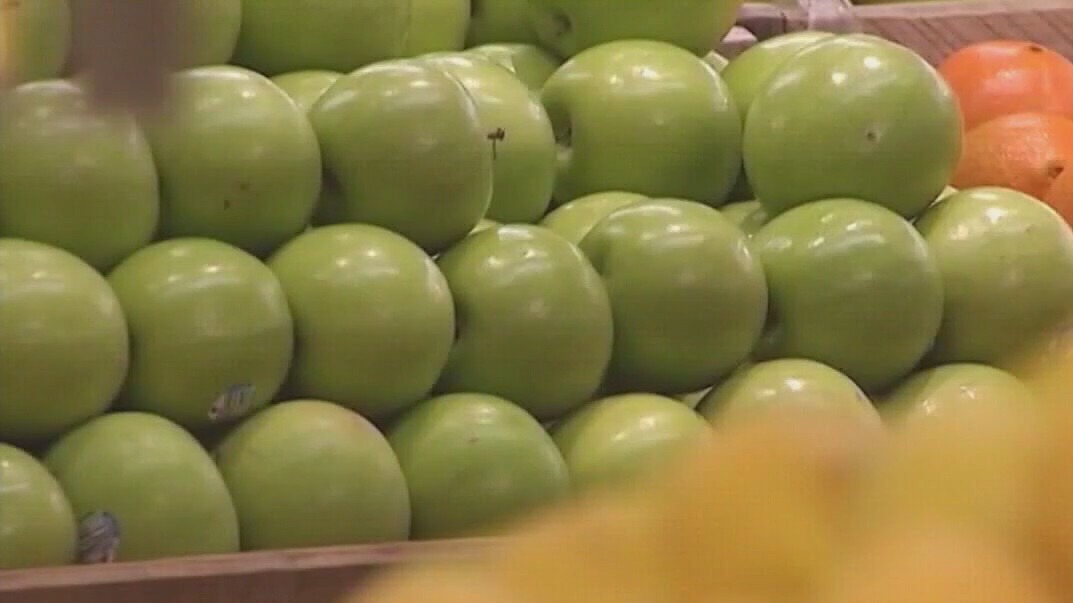Texas SNAP applications process delayed by months, whistleblowers report

SNAP food assistance delay
Families eligible for food assistance might struggle to put a meal on the table this holiday season. That is because government aid is reportedly taking months to process. Congressman Lloyd Doggett joined FOX 7 Austin's Rebecca Thomas to discuss.
AUSTIN, Texas - Right now, it could take a family in need six months to get food assistance.
That's according to a whistleblower email sent to Texas Health and Human Services, the state agency that processes applications for the Supplemental Nutrition Assistance Program, commonly known as SNAP.
U.S. Rep Lloyd Doggett (D-Texas) joined FOX 7 Austin's Rebecca Thomas to talk about the processing delay and the impact of it on Texans in need.
REBECCA THOMAS: Would you explain what's known about this SNAP processing delay and just how bad it's gotten for families?
LLOYD DOGGETT: Yes, it is really troubling. You know, at Thanksgiving and the holiday period, so many families are out, church groups, civic organizations trying to help feed those who are most in need. And I found it encouraging Governor Abbott was out at Meals on Wheels, but contradictory that his administration has let this slip as Texas has been out of compliance with federal law for two years. And what this means, and we know about what it means largely because of some courageous state whistleblowers, is a 180-day delay from the time someone files an application until it gets processed. It was only 75 days when they originally complained back in August. But it's gotten steadily worse. And they predict that unless action is taken, it will take 200 days. Sometimes a person, a person with disabilities, a senior who has entitlement to this food assistance, which is all federal food assistance that the state is simply charged with administering. Sometimes that person loses their food assistance right in the middle of the month because the application has not been properly processed. We just can't have this continue to happen. And we need much greater attention from the governor personally and from this agency to see that folks coming here in the holiday season, especially, get the food that the federal government is providing and funding and get it efficiently.
MORE TEXAS NEWS
- Gov. Abbott skydives with 106-year-old Georgetown man
- Sixth Street bar helps those in need on Thanksgiving
- Unidentified remains found in San Angelo in 1996 may have Austin connection
REBECCA THOMAS: As you mentioned, some families may be waiting until well after Christmas to get food assistance. How long is a reasonable time?
LLOYD DOGGETT: Well, the federal government says basically you're supposed to do it promptly and within a 30-day period. I think the federal requirement is that you complete 95% of the applications within 30 days instead of dragging it out for over half a year. As a result of these whistleblowers, I organized communication with the U.S. Department of Agriculture, which is supposed to provide oversight, insisting that they do something about this. Fortunately, they've gotten a couple of people on the ground down here to Texas to meet and try to develop an action plan. And they have come out within the last few days with a corrective action plan. It's some 62 pages long, outlining a whole series of bureaucratic inefficiencies and failures. I would note that I am concerned as I am about getting hungry people the food that they are entitled to get under federal law, and I was also troubled by a section that is a payment error section. And what that means is they got food assistance out to some people that weren't entitled to it, and they denied food to some who were. It means that there's a taxpayer protection issue here, just as there is a hunger prevention issue.
REBECCA THOMAS: We are running out of time. Final question. As you mentioned, the USDA visited Texas earlier this month to identify potential solutions. You're meeting with the department this week. What do you expect to find out as far as what can be done?
LLOYD DOGGETT: I want to be sure that they are monitoring Texas, given its failure to do what it says it will do and that we will see this delay period begin to drop significantly. The one action that the governor finally indicated after some great delay in ever responding to the whistleblowers was that he was shifting some people from one part of the agency to another to do this. The whistleblowers have responded that those people that are being shifted already have the responsibility for the Medicaid backlog, which is even bigger than the SNAP backlog. That's the government program that is designed to connect disadvantaged families with a family physician and vital medication. So there's a much bigger problem here. We need much more personal attention from Governor Abbott to resolve it. I'll be sitting on the federal administrators to say, be sure Texas does its job.
REBECCA THOMAS: All right. We are out of time. Congressman Lloyd Doggett, thank you so much for sharing your time and perspective with us tonight. Thanks.

